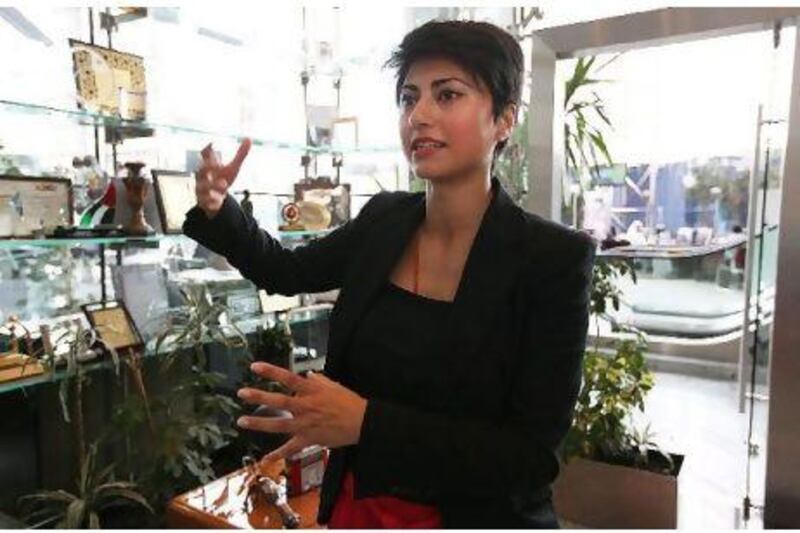ABU DHABI // A study under way in Abu Dhabi suggests buildings in the capital may be cooled down to unnecessarily low levels.
The British economist Tia Kansara has spent the past three years studying 20 buildings, measuring indoor temperatures and interviewing more than 1,000 occupants.
"Quite a lot of people were saying it was too cold in their buildings," said Ms Kansara, who is conducting the research as part of her doctoral thesis at University College London. "It would be at least 80 per cent of the people surveyed who said it was too cold."
Ms Kansara's thesis is expected to be complete this time next year. It will be the first detailed study about thermal comfort and energy efficiency in the UAE.
She has measured temperatures varying from 17°C to 31°C, depending on the building and the location inside it. Buildings under review include the Urban Planning Council and the Department of Municipal Affairs, and several buildings belonging to Abu Dhabi Commercial Properties.
In addition to temperature, Ms Kansara is also looking at building size and energy consumption. Outdoor temperature, humidity, light levels within a building and air quality are also factors being measured. After a four-month period of data collection last year, she is doing another round of measuring this year.
She began again on Wednesday with the headquarters of the National Bank of Abu Dhabi.
While environmental factors such as temperature are important, thermal comfort also depends on individual factors such as age, sex and how long a person has lived in the UAE.
Women, for example, are "much more sensitive to their environment", Ms Kansara says. "They get colder quicker and they have slower metabolism."
How comfortable a person feels in an air-conditioned building also depends on how long they have been exposed to heat, and how long it takes them to cool down and be comfortable after heat exposure.
When it comes to thermal comfort in offices, even something as rank within the company matters, said Ms Kansara.
"If you are higher up in the business and you know you can call maintenance and ask for your preferred temperature, you are much happier with thermal comfort," she said.
"Thermal comfort is very much about the psychology of human beings."
Although her research remains a work in progress, Ms Kansara has already made a difference in Abu Dhabi.
Upon receiving some of her findings last year, a company in one of the buildings under study has changed its seating floor plan. The floor was being cooled unevenly, so people were moved around depending on whether they preferred to be in the cooler or warmer spots. Under Ms Kansara's guidance, all 20 of the buildings in the study are testing to see if they can use less cooling. Since August 1, thermostats at the buildings have been raised by one degree.
If there are no complaints, the temperature will be raised further each week until a level is achieved that makes sense for comfort and energy savings.





